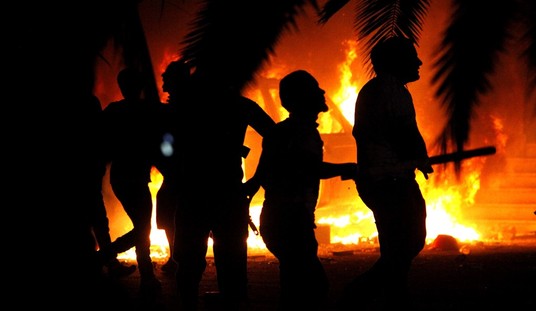While the Foreign Policy President & friends have assured us that Obama’s policies have indeed made the world a safer, more peaceful place than when he took office, not everybody is convinced. In the Middle East specifically, his timeline for troop withdrawal from the Middle East somehow still feels like it prioritizes merely ending the War on Terror rather winning it; the “Arab Spring” seems to present more potential threats than benefits; and meanwhile, Iran’s nuclear centrifuges just keep spinning away. As former Obama national security adviser General James Jones attested on Charlie Rose last night, it doesn’t look like President Obama’s polices have concretely accomplished all that much in the region:
Well, the whole setup for analyzing the world that we face was based on an initial premise that we needed to size up the problems, talk to the people that historically were causing us difficulties, and see if there was some way to proceed ahead, as we now know, in some cases we made some progress; I would cite the START Treaty as an example of a successful couple of years of hard work with the Russians. On the other hand, with the Middle East and Iran, we’re probably right back where we were three or four years ago. So, it is great to be able to come in and try to think strategically, but you’re really many times driven by the tactics of the moment. You find yourself responding to the tactical impulses that face us. And it’s very hard to keep that strategic focus.
And if that doesn’t get you, here’s the WSJ with a somewhat unnerving report — the administration’s drawdown schedule may be ready to go, but that doesn’t necessarily mean that Afghanistan is ready for it:
With insurgents and bandits openly roaming Bamiyan’s remote districts and the Taliban blowing up food and fuel trucks on the road to Kabul, many residents here increasingly fear they will be overrun once the last coalition base in the province closes in April. …
What happens here is a portent of things to come in the rest of Afghanistan, as the U.S. winds down its longest foreign war. The U.S.-led coalition began transferring security responsibility over provinces and districts to Afghan security forces in mid-2011. The entire country is slated to be handed over by 2014, the year when the coalition’s military mandate ends. …
The coalition says the transition is progressing well, with three-quarters of the country’s population already living under Afghan security control. The handover continues though the Taliban-led insurgency shows no sign of being defeated. In September, according to coalition statistics released Tuesday, the number of insurgents attacks was 1% higher than in September 2011.
Uncertainty always abounds on the global stage, but taken within the context of the recent security failures in Benghazi that resulted in the death of four Americans, there are just a few too many holes being shot in the Obama administration’s foreign-policy narrative for comfort; the death of Osama bin Laden and a bunch of his kindred spirits via drone strikes just isn’t enough to keep all of our bases covered in the Middle East.








Join the conversation as a VIP Member